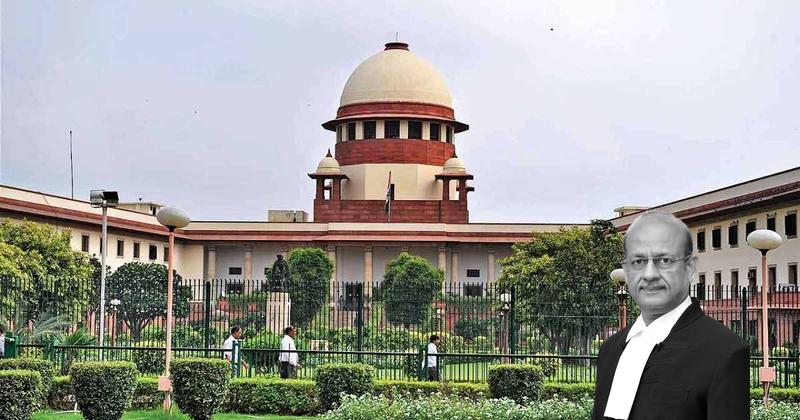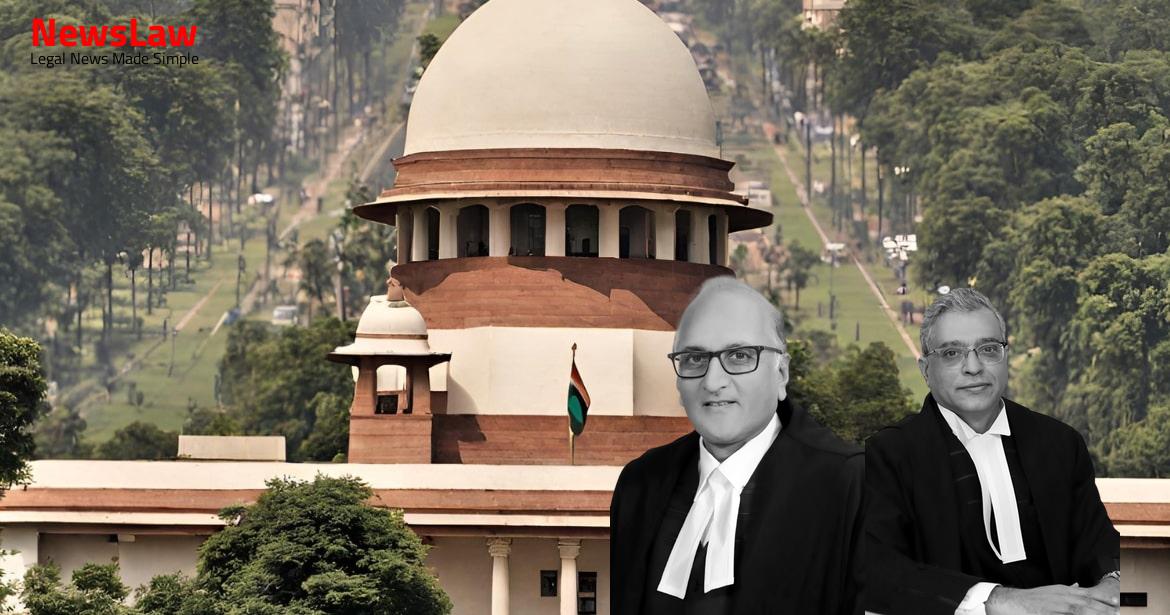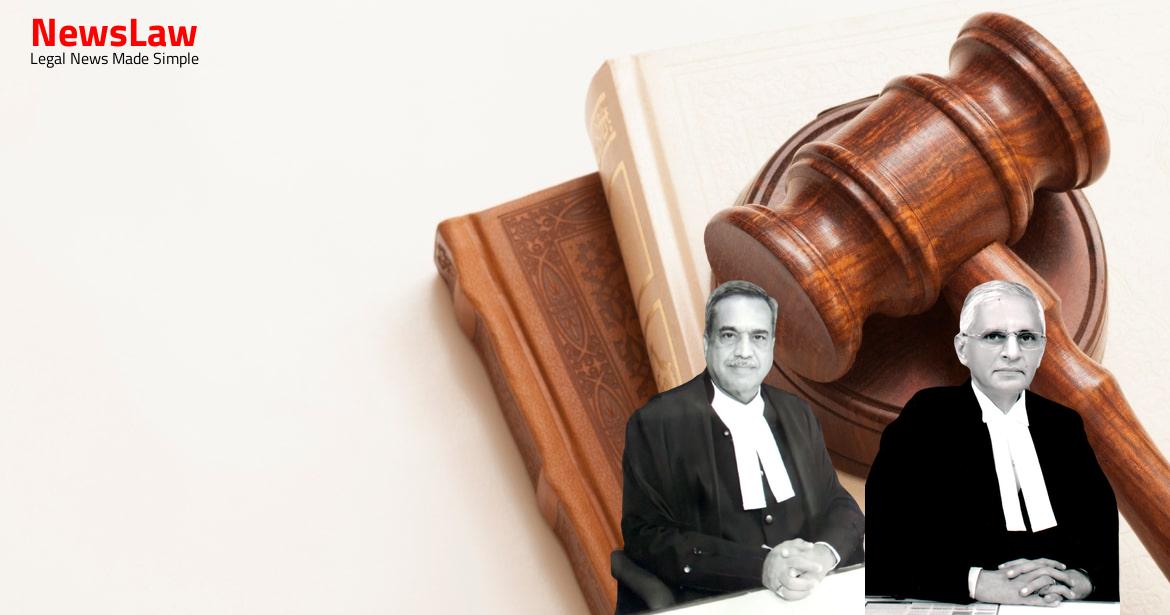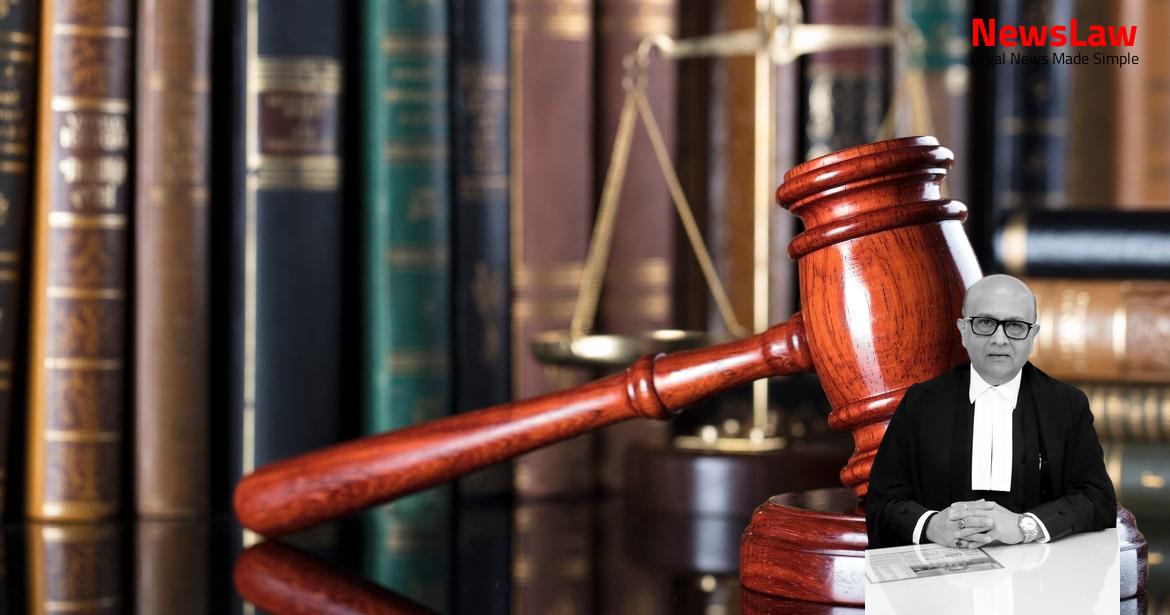The appellants are aggrieved by the order dated 25 June, 2013, passed by the High Court of Karnataka Circuit Bench at Dharwad whereby the Regular Second Appeal filed by them against the judgment and decree dated 16 September, 2010, passed by the Principal District and Sessions Judge, Belgaum, has been dismissed.
Vide judgment dated 16 September, 2010, the learned Principal District Judge reversed the judgment and decree dated 22 December, 2007, passed by the 1 12 REPORTABLE learned Civil Judge (Senior Division)
Chikodi whereunder the suit instituted by the appellants for seeking a declaration to the effect that the appellant no. 2 and 3 are their legitimate children, was decreed in their favour and it was held that they were entitled to the pensionary benefits payable by the respondents herein and standing in the name of the deceased Subedar Bhave. The said request was, however, rejected by the respondents on the ground that the deceased had got divorced in November, 1990, whereas the appellant No.1 claimed to have got married to him in February, 1981, during the subsistence of the earlier marriage.
Rahul Joshi, learned counsel, appearing for the appellants has contended that High Court erred in holding that the appellant No 1 cannot be declared as the wife of the deceased Subedar Bhave, on the ground that their marriage had taken place during the subsistence of his marriage with Anusuya. He submitted that the embargo placed under Section 5(1) of the Hindu Marriage Act, 1955 that recognizes a marriage solemnized between any two Hindus on the condition that neither party has a spouse living at the time of marriage, would not prejudice the case of the appellant No 1 for being recognized as the wife of the deceased in view of the long period of cohabitation between them, which circumstance would attract the presumption of the marriage between the parties being legal, as contemplated under Section 114 of the Evidence Act, 1872. from 16 November, 1990, till the date of demise of the deceased, admittedly, he and the appellant No 1 were cohabiting, thereby entitling the appellants to claim the pensionary benefits of the deceased. K M Nataraj, learned Additional Solicitor General appearing for the respondents has supported the impugned judgment and submitted that the marriage between deceased the appellant
Also Read: https://newslaw.in/supreme-court/retirement-age-of-pti-sports-officer-in-university/
No 1 and the deceased is a void 5 12 marriage under Section 11 of the HMA, as the said marriage was contracted during the subsistence of the marriage between Subedar Bhave and Anusuya. As for the appellant No 2 and 3, offspring of Late Subedar Bhave and the appellant 1, it is submitted that they too would not be entitled to any relief under the Regulations, in as much as, both the said appellants have crossed the age of 25 years whereas under Regulation 219(iv), the son of an employee would be eligible for family pension if he is below the age of 25 years.
Subedar Bhave in the facts of the instant case where he had got married to the appellant No.1 during the subsistence of his marriage with Anusuya, but, subsequently a decree of divorce was passed, dissolving the said marriage. On the demise of Subedar Bhave in the year 2001, when the appellant No 1 approached the respondents claiming family pension, the said request was rejected only on the ground that her marriage with Late Subedar Bhave had taken place in February, 1981 whereas he and Anusuya, got divorced much later, in the year 1990. A similar view has been taken by this Court in Madan Mohan Singh and Others v. Sarma (supra) and Dhannulal And Others v. In Kattukandi Edathil Valsan’s Case (supra), citing the abovesaid decisions and relying on Section 114 of the Evidence Act, this Court held in the facts of the said case that there was a presumption of the marriage between the parents of the plaintiffs on the ground of their long cohabitation status, entitling their offspring to claim their share in the suit schedule property.
In the above background, a presumption ought to have been drawn in favour of the validity of the marriage between the deceased and the appellant No 1, more so, when during his life time, the deceased had approached the respondent authorities for seeking deletion of the name of his previous wife – Anusuya from his service record and for endorsement of the name of the appellant No 1 therein, which was duly acted upon by the 11 12 respondents vide letter dated 05 July, 1999.
[ HIMA KOHLI ]…………………..J. [ RAJESH BINDAL ] NEW DELHI AUGUST 18, 2023 12 12
Case Title: SMT. SHIRAMABAI Vs. THE CAPTAIN RECORD OFFICER FOR O. I. C. RECORDS
Case Number: C.A. No.-005262-005262 / 2023



